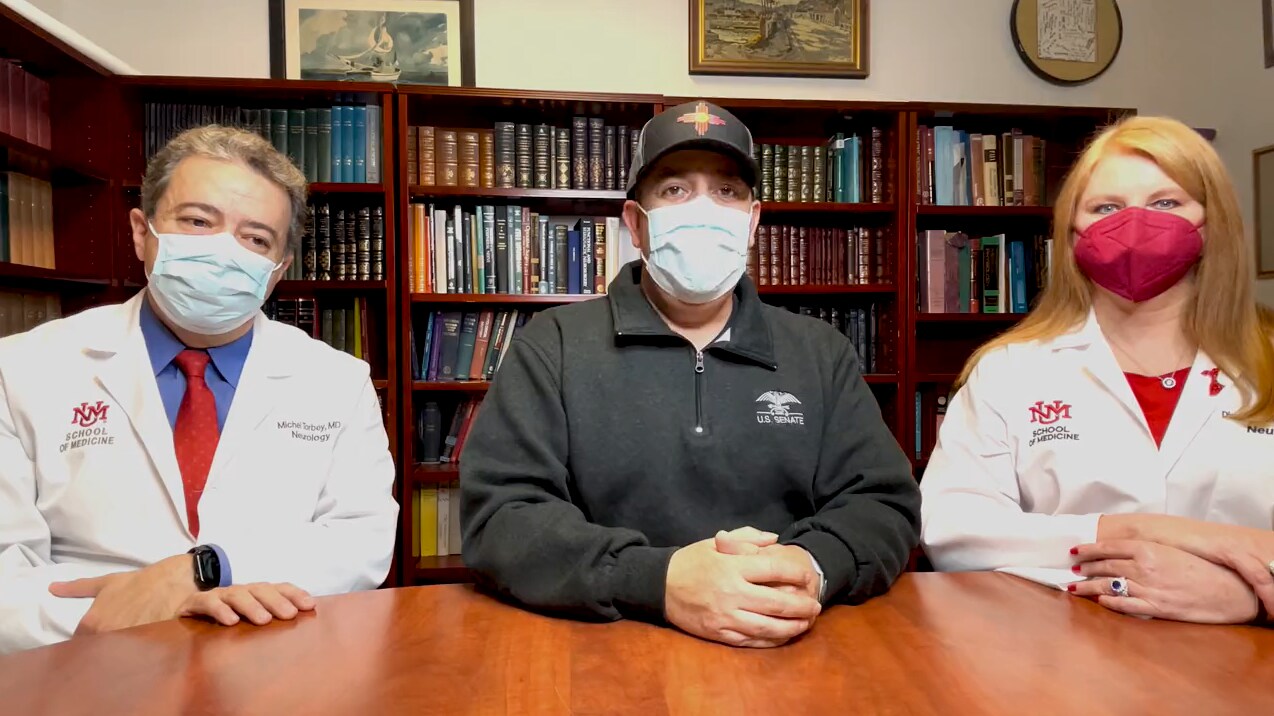Sen. Luján says he’s ‘doing well’ as he recovers from stroke, estimates returning to Senate within weeks

Luján, 49, began experiencing dizziness and fatigue on the morning of Jan. 27 and checked himself into a hospital in Santa Fe, his chief of staff, Carlos Sanchez, said earlier this month. Luján was transferred to the University of New Mexico Hospital in Albuquerque, where he underwent decompressive surgery to ease swelling in his brain, Sanchez said.
In his video Sunday, Luján said he would be discharged soon to an inpatient rehabilitation facility, where his recovery would “take a few more weeks.”
“I’m proud to report then I’ll be back on the floor of the United States Senate in just a few short weeks to vote on important legislation and to consider a Supreme Court nominee,” he added. “Now rest assured, New Mexicans can know they will have a voice and a vote during this process. That has never changed.”
Luján is not on the Senate Judiciary Committee, so his absence would not affect the committee’s ability to vet the nominee and hold confirmation hearings, which probably would take at least two weeks after the announcement. Democrats, who hold a narrow 50-50 majority in the Senate — with Vice President Harris as the tiebreaking vote — will need a unified front if they want to confirm Biden’s nominee without the help of Republicans when the full Senate votes.
In the video Sunday, Diana Greene-Chandos, an associate professor of neurology at UNM, said they discovered that a tear in Luján’s vertebral artery was the cause of his stroke. The surgery to relieve pressure in his brain was successful, she said, and he “continues to make significant progress.”
Michel Torbey, the chair of the UNM neurology department, described Luján in the video as “the type of patient who would take his health seriously” and put in the work required for a full recovery. Torbey also emphasized how critical it was that Luján checked himself into a hospital after experiencing dizziness and fatigue, which were symptoms that he had suffered a stroke in the cerebellum, the part of the brain that controls balance.
“I want to stress how important it was that the senator acted fast and was able to get health care and medical care promptly and was brought in to a comprehensive stroke center,” Torbey said.
Other signs of a possible stroke include sudden trouble seeing out of one or both eyes, facial weakness, arm weakness and impaired speech.
“It is crucial for us to work and educate the community about the signs of stroke,” Torbey said. “Identifying those signs and acting on them quickly could save your life and the life of a loved one.”
Mike DeBonis contributed to this report.






